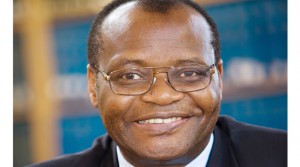By CATHERINE NYIRENDA –
A RENOWNED lawyer, Muna Ndulo has said adopting a Constitution using the referendum has its own shortcomings although it is the preferred mode.
Professor Ndulo said that adoption of the Constitution through the referendum might have shortcomings because people might not understand what they were agreeing or disagreeing to.
“Although I fully support adoption of the Constitution through the referendum, it has its own shortcomings because it is merely saying ‘yes’ and people might be saying so without understanding what they are agreeing to or disagreeing,” Prof Ndulo said.
He said this on Wednesday night during the public discussion themed ‘Constitutionalism’ organised by the Law Association of Zambia at Southern Sun Hotel in Lusaka.
Prof Ndulo said there was need to come up with a platform for people to understand the content of the clauses in the Draft Constitution.
“In Zambia, we are at a stage where you have the draft and you are not sure what is in the draft,” he said.
Prof Ndulo said adopting the Constitution through the referendum would help legitimise the entire Constitution-making process.
He said the country should also make a comparative study about what had happened in Kenya and Zimbabwe, which was similar to what was happening in Zambia.
University of Zambia (UNZA) Constitutional Law lecturer, Chipo Nkhata said there was need for a lot of advocacy work to hold the Government accountable and transparent.
Ms Nkhata, however, said the relationship between the State and civil society organisations (CSOs) had not been cordial with the two parties being suspicious of each other’s intentions.
“NGOs in Zambia have tried to push the Constitution agenda, there is a lot of good work that NGOs have done but they should ensure that the Constitution places limitations on the State but NGOs themselves need to be aware of where the excesses are in the present Constitution,” she said.
Media trainer,Kellys Kaunda, who spoke on the role of the media in the Constitution-making process, said freedom of the Press across Africa was usually violated with impunity.
Mr Kaunda also urged journalists to take keen interest in the Constitution formulation, saying the document was not a preserve of lawyers.
“I have always believed that a Constitution is our autobiography as a people and should reflect our aspirations,” he said.







